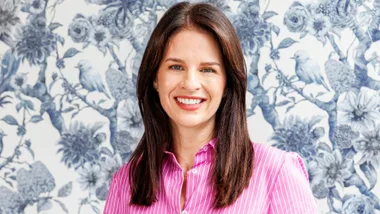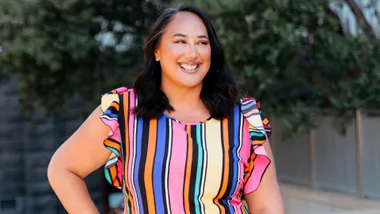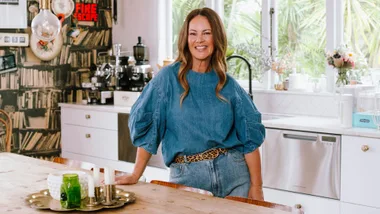I had been a farmer’s wife for 15 years, living in the remote Hokianga, when my marriage broke up. Soon I was left surviving on a benefit, looking after six children including an intellectually handicapped foster son.
I had always seen myself as this ‘worthy citizen’, then all of a sudden I was in the dole queue, making a bit of extra money doing some housekeeping, and always just scraping by. It really knocked me around.
I had formerly trained as a librarian, so when I finally got a job as an assistant librarian at the local school, I was so excited I would have paid them to let me work there! By that stage I hadn’t worked in 11 years, and the fact somebody actually wanted me and thought I had something of value to offer was a major step forward for my badly dented self-esteem.
I had been there for a couple of years when I overheard another librarian say to a visiting principal, ‘That’s Robyn, she comes in to do some typing’. I was so angry, and it was a real wake-up call. I thought, I’m worth more than just ‘Robyn who does a bit of typing!’
Making the change
I think that’s been a big thing for me, if somebody says I can’t do something, I think, just watch me. The fire in the belly kicks in. I always had a sense of my own worth, but the circumstances around me were not supporting that.
I was looking for that thing that would get me out of the poverty trap, when a girlfriend loaned me a book on self-development using positive affirmations and visualisation. The book really gave me a sense of something I could do. I had no money, but I could at least exercise the power of my brain. I decided to make a major change, and within a year, I had moved to Auckland.
My daughter was to come and live with me after the school holidays, while my sons would stay on the farm with their father. I cried the whole way as I drove south, but I had to stay focused so I could find a way to make a home for myself and my daughter. I eventually landed a job in real estate, and I was working long hours, winning awards, and often making more money in a month than what I would make in a year on the domestic purposes benefit up north, but after three years I was completely burned out and I knew I had to make a change.
A friend of mine was running a public speaking business, and she asked me to assist one of her trainers with a presentation on time management. I didn’t feel like I was any good at it at the time, and I wasn’t, but my friend reassured me by saying, “I’ve watched you, and I know you understand the principles” – and in actual fact I did, as I had been reading up on the topic for a couple of years. Soon other people started asking me for talks, one thing grew into another, and I have been doing it for 24 years now.
These days, I write a column for a newspaper and I’m a regular contributor for a radio station. I work with local clients three days a week, and do regular work in the UK, running training programmes and workshops.
I don’t like buying into the idea that I’m too busy; a significant part of my belief system is that we have all the time we need, and it’s about prioritising.
When it comes to making a big lifestyle change, it helps to think about the thing that you hold in your heart as something you really want to do, dream big, and don’t be afraid. Be prepared to take that one step that takes you in a new direction. Somehow there is always something better around the next corner.
Robyn’s tips
‘No’ is your most powerful time management tool
When we know what our values are, and when we have a clear set of goals in all areas of our lives, we’re in a much stronger position to politely say ‘no’ to potential time stealers and activities that are less relevant.
Make an appointment with yourself
It’s too easy to get caught up in everlasting deadlines. Change that emphasis by making appointments with yourself, written into your diary or organiser, to work on one or two activities per week of long-term and long-lasting value. Think of the big tasks you always put off until you ‘have time’. Almost certainly they can be broken down into small chunks.
Constantly ask, ‘What is my highest priority right now?’ (And do it!)
This question is great for giving focus, and it can make it easier to stay on task with activities that really make a difference. We’re also less likely at the end of the day to find we’ve not dealt with our most urgent priorities.
Manage your energy well and time looks after itself.
Around the world I’m hearing the phrase ‘energy management’ more and more. Think of your energy levels as your filter or indicator as to whether you’re doing the right things. Sluggish energy is a powerful clue – if something isn’t flowing smoothly there are almost always ways to either change activity or improve things.
Don’t make emails the first thing you do in the morning.
If you get hooked into email first thing, it takes over. In fact, it’s an addictive medium. Instead, you take control of your day. Spend time on the most important tasks for the day, and (unless it’s truly vital) don’t look at email until at least mid-morning, and then only for a defined chunk of time. Have two or three email slots throughout the day.
As told to Sara Bunny
For more from NEXT, follow us on Facebook and Instagram here.










